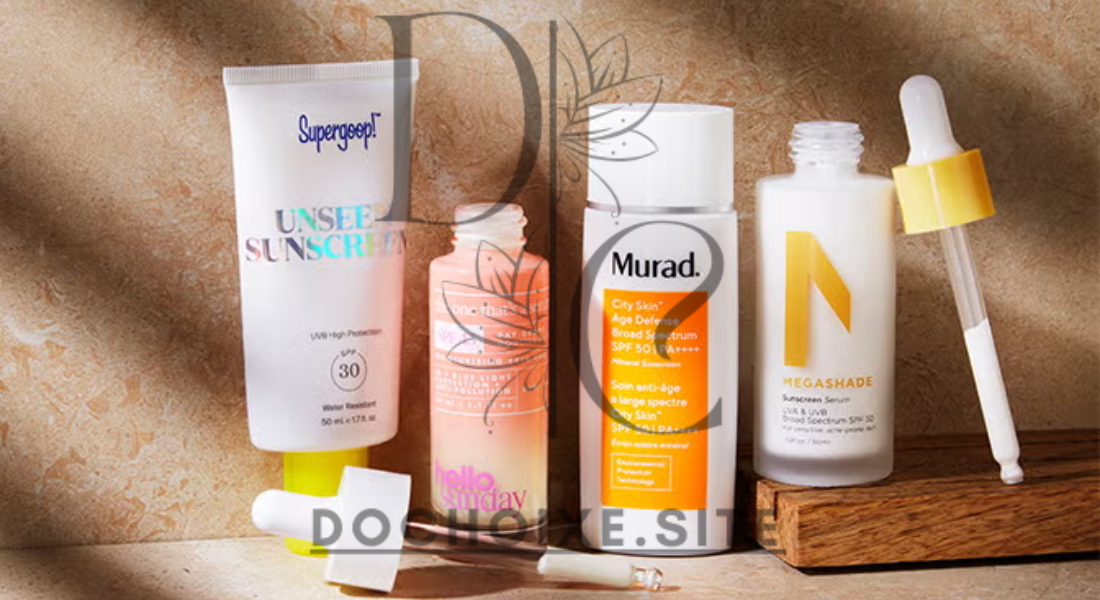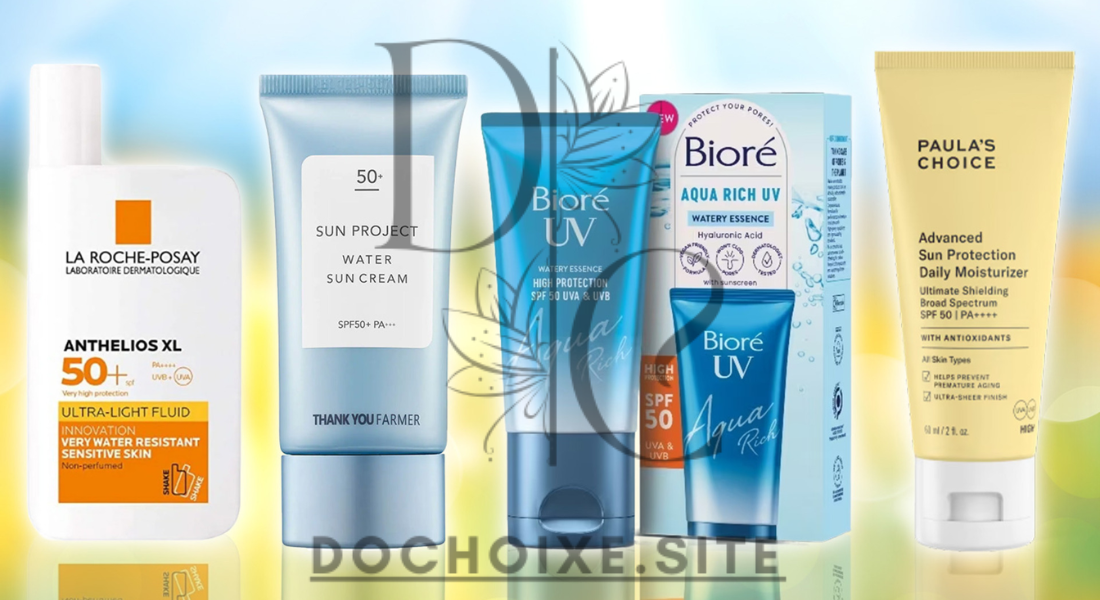Finding the best SPF sunscreen can be a game-changer in your skincare routine. Sunscreen is essential for protecting your skin from UV rays, which can lead to premature aging, sunburn, and skin cancer. This guide dives into everything you need to know about selecting a high-quality SPF sunscreen, tailored to different skin types and lifestyles. Discover how the right SPF can keep your skin radiant and healthy all year long!
Understanding SPF: What It Really Means
Before choosing the best SPF sunscreen, it’s important to understand what SPF (Sun Protection Factor) really means. SPF measures how well the sunscreen protects against UVB rays, which are the primary cause of sunburn and skin damage. Higher SPF values offer more protection, but they don’t necessarily last longer on the skin.
Choosing the Right SPF Level
- SPF 15: Provides basic protection, suitable for daily wear if you spend most of your day indoors.
- SPF 30: Offers enhanced protection and is the recommended minimum for most people.
- SPF 50 and above: Provides maximum protection, ideal for prolonged outdoor activities or people with very fair skin.
Key Ingredients to Look for in the Best SPF Sunscreen
Selecting the best sunscreen goes beyond just SPF numbers. The ingredients can make a significant difference in the product’s effectiveness and suitability for your skin type.
Physical vs. Chemical Sunscreens
- Physical (Mineral) Sunscreens
These sunscreens contain natural minerals like zinc oxide or titanium dioxide, which sit on top of the skin and reflect UV rays. They’re often preferred by those with sensitive skin, as they’re less likely to cause irritation. - Chemical Sunscreens
Chemical sunscreens absorb UV rays and convert them into heat, which is then released from the skin. These sunscreens often have lighter textures, making them more suitable for daily wear.
Additional Beneficial Ingredients
- Antioxidants (like vitamin E and C) can provide extra protection by neutralizing free radicals.
- Moisturizers (such as hyaluronic acid or glycerin) keep your skin hydrated, which is essential when using sunscreen daily.
- Non-comedogenic Ingredients prevent clogged pores, making them ideal for oily and acne-prone skin.
Best SPF Sunscreens for Different Skin Types
Not all sunscreens work well for every skin type. The best SPF sunscreen for you will depend on whether you have oily, dry, combination, or sensitive skin. Here’s how to find the right match.
Sunscreens for Oily and Acne-Prone Skin
Look for lightweight, non-greasy formulas that won’t clog pores. Gel-based or matte-finish sunscreens are often ideal for oily skin types. Many sunscreens for oily skin include ingredients like niacinamide, which can help control excess oil production.
Sunscreens for Dry Skin
Hydration is key for dry skin, so choose a sunscreen that includes moisturizing ingredients like ceramides or hyaluronic acid. Cream-based sunscreens provide a richer texture that can nourish and protect dry skin throughout the day.
Sunscreens for Sensitive Skin
If you have sensitive skin, mineral sunscreens with zinc oxide or titanium dioxide are often the safest choice. These physical sunscreens are less likely to cause irritation and can provide reliable protection for reactive skin types.
How to Apply SPF Sunscreen for Maximum Effectiveness
Applying sunscreen correctly is crucial for getting the full protective benefits. Even the best SPF sunscreen can fall short if it’s not applied properly. Here’s how to ensure you’re getting optimal coverage.
Steps for Effective Application
- Apply Generously
Use about a teaspoon of sunscreen for your face and a shot glass-sized amount for your body. Don’t skimp—applying too little can significantly reduce the SPF’s effectiveness. - Reapply Regularly
Sunscreen wears off due to sweat, water, and natural skin oils. Reapply every two hours, especially if you’re spending time outdoors or swimming. - Don’t Forget the Small Areas
Areas like your ears, neck, hands, and feet are often forgotten but are just as prone to sun damage. Make sure you cover these areas well. - Layer with Makeup if Necessary
If you’re wearing makeup, apply your sunscreen first, let it absorb, then continue with your routine. Many makeup products also contain SPF, but they’re not a substitute for a good sunscreen base.
The Best SPF Sunscreens for Everyday Use
Daily SPF protection is essential, even on cloudy days or when you’re mostly indoors. Here are some top sunscreen recommendations for everyday wear, designed to provide broad-spectrum protection without feeling heavy or greasy.
Top Picks for Everyday Sunscreens
- Lightweight Gel Sunscreens
These sunscreens offer high SPF without a sticky feel, making them perfect for everyday use. Gel formulas absorb quickly, leaving no white cast, which is a common complaint with traditional sunscreens. - Tinted Sunscreens
Tinted sunscreens offer sun protection with a hint of color, ideal for those looking for a light coverage option. They can also help even out your skin tone, providing a subtle glow while protecting against UV rays. - Moisturizing SPF Creams
For dry or combination skin, moisturizing SPF creams combine hydration with sun protection, keeping your skin nourished and protected all day. These work especially well as a base under makeup.
Best SPF Sunscreens for Outdoor Activities
If you’re planning a day at the beach, hiking, or other outdoor activities, you’ll need a sunscreen that can withstand sweat and water. Look for sunscreens labeled as “water-resistant” for extended protection during physical activity.
Ideal Choices for Active Sunscreens
- Water-Resistant Formulas
Water-resistant sunscreens are a must for outdoor activities. They provide up to 80 minutes of protection even in water, ensuring you stay protected during intense exercise or swimming. - Stick Sunscreens for Easy Reapplication
Sunscreen sticks are convenient for reapplying on the go, particularly on areas like the face, shoulders, and neck. They’re compact, making them easy to carry in a bag or pocket. - SPF Sprays for Body Coverage
Spray sunscreens allow quick application over large areas, making them ideal for body coverage. Look for sprays that provide even coverage and remember to reapply frequently, as sprays can wear off faster.
Common Myths About SPF Sunscreen Debunked
There are many misconceptions about sunscreen and SPF, which can lead to improper usage or inadequate protection. Let’s clear up some of the most common myths surrounding SPF sunscreen.
Myth 1: Higher SPF Means Longer Protection
SPF only measures protection against UVB rays and does not indicate how long you can stay in the sun without reapplying. Even high-SPF sunscreens need reapplication every two hours.
Myth 2: Sunscreen Isn’t Necessary on Cloudy Days
Up to 80% of UV rays can penetrate clouds, meaning your skin is still at risk. Wearing SPF sunscreen is essential, rain or shine, for consistent protection.
Myth 3: Darker Skin Doesn’t Need Sunscreen
While darker skin tones have more natural melanin, which provides some protection, it doesn’t eliminate the risk of sun damage or skin cancer. Sunscreen is necessary for all skin tones to ensure full protection.
Why Investing in the Best SPF Sunscreen Matters
Choosing the right sunscreen isn’t just about immediate protection—it’s an investment in your skin’s long-term health. Regular use of a high-quality SPF can prevent premature aging, reduce the risk of sunspots, and keep your skin looking youthful.
Benefits of Consistent Sunscreen Use
- Reduces Signs of Aging
Sun exposure is one of the leading causes of wrinkles and fine lines. Daily use of SPF sunscreen can prevent sun damage, keeping your skin smoother and more youthful over time. - Protects Against Skin Cancer
Skin cancer is a serious risk with prolonged UV exposure. Regular use of SPF sunscreen can help reduce your risk by shielding your skin from harmful rays. - Improves Overall Skin Health
Sunscreen keeps your skin barrier protected, minimizing issues like dryness, sunspots, and pigmentation, which can occur with cumulative sun exposure.
Conclusion
Finding the best SPF sunscreen tailored to your skin type and lifestyle is essential for year-round protection. Whether you’re choosing a lightweight formula for everyday wear or a water-resistant option for outdoor activities, the right sunscreen can make a world of difference in your skin’s health and appearance. Embrace the habit of daily SPF application, and your skin will thank you with a glowing, youthful look for years to come!

